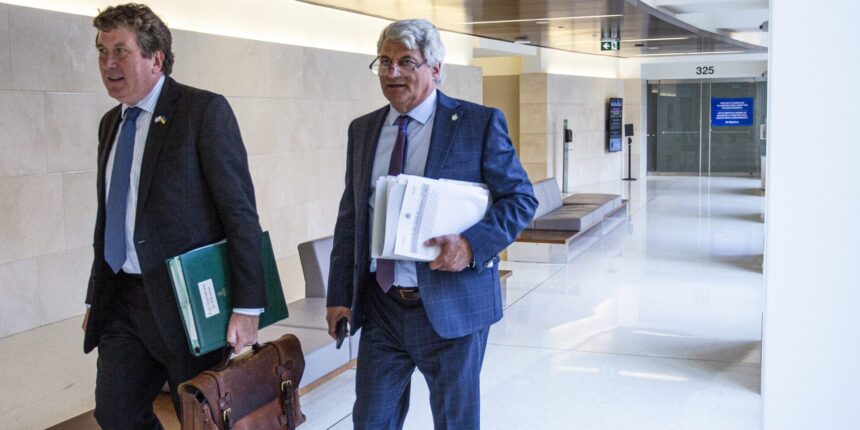In an unprecedented move reflecting the gravity of national security concerns, two parliamentary committees have opted to conduct closed-door hearings on critical issues facing Canada’s institutions. The Public Safety Committee and National Defence Committee have scheduled in-camera sessions to examine border security vulnerabilities and ongoing sexual misconduct allegations within the Canadian Armed Forces, respectively.
The decision to shield these proceedings from public view signals the sensitive nature of testimony expected from high-ranking officials, including Canada Border Services Agency Commissioner Marie-Claude Deschênes and Lieutenant-General Jennie Carignan, who leads the military’s professional conduct and culture reform efforts.
“When we’re discussing matters that could potentially compromise national security or ongoing investigations, there’s a delicate balance between transparency and prudence,” explained security analyst Martin Leblanc in an exclusive interview with CO24 News. “These committees must weigh public interest against potential risks of exposing operational details that could be exploited.”
The Public Safety Committee’s focus on border security comes amid growing concerns about smuggling operations and irregular crossings along Canada’s 8,891-kilometer border with the United States. Recent intelligence reports have highlighted sophisticated criminal networks exploiting vulnerabilities in remote regions, particularly along the Quebec and British Columbia boundaries.
Parliamentary sources speaking on condition of anonymity revealed that testimony will include classified assessments of current threats and resource gaps that hamper effective monitoring. The CBSA has reportedly requested substantial funding increases to address technological and personnel shortfalls at key crossing points.
Meanwhile, the Defence Committee’s examination of sexual misconduct represents the latest chapter in a troubling saga that has plagued the Canadian military. Despite numerous reform initiatives since 2015, when the issue first gained prominent attention through the landmark Deschamps report, allegations continue to emerge at concerning rates.
“The persistent nature of these issues suggests structural problems that transcend individual cases,” noted military justice expert Professor Catherine McKenzie from the University of Toronto. “The committee needs unfettered access to candid assessments without the constraints that public hearings might impose on witnesses.”
Statistics obtained through Access to Information requests show that reported incidents within the military increased by 23% in 2024 compared to the previous year, raising questions about the effectiveness of existing prevention and response mechanisms. The Canadian Forces have implemented mandatory training programs and established specialized investigation units, but critics argue these measures remain insufficient.
Several military personnel advocacy groups have expressed frustration with the closed-door nature of the hearings, arguing that secrecy has historically enabled institutional protection rather than accountability.
“While we understand the need for discretion in certain contexts, we’ve seen how lack of transparency can perpetuate cycles of abuse,” said Eleanor Weston, director of Military Members for Accountability. “There must be assurances that findings will be meaningfully shared with the public, even if specific testimony remains classified.”
The decision to hold in-camera sessions was approved by majority votes in both committees, though opposition members raised concerns about potential limitations on parliamentary oversight functions. Critics have questioned whether sufficient guardrails exist to prevent the classification of information that poses no genuine security risk but might prove politically embarrassing.
Former parliamentary counsel Bernard Lacroix suggests the committees have legal mechanisms to balance these competing interests. “Committees can release redacted transcripts or summary reports that protect sensitive information while still providing substantive findings to Canadians,” he told CO24 Politics.
Both committees are expected to produce public reports following the conclusion of hearings, though timelines remain uncertain. The border security sessions will reportedly include testimony from intelligence officials regarding foreign influence operations targeting Canada’s border integrity, while the military misconduct hearings will examine institutional response patterns to allegations across different branches and ranks.
As Canada grapples with these challenging issues behind closed doors, the fundamental question emerges: can our democratic institutions effectively address threats to national security and institutional integrity while maintaining the principles of transparency and accountability that underpin public trust?










